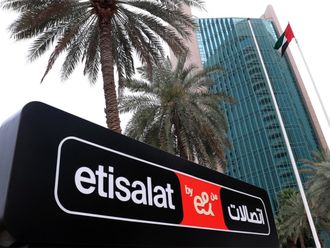
Dubai: The International Islamic Financial Market (IIFM), the Bahrain-based organisation seeking to set standards for Islamic securities, may issue new global guidelines to facilitate the sale of sukuk or Sharia-compliant bonds, an official at the industry body said.
"There is no one, cross-border, common benchmark for sukuk," IIFM's Chief Executive Officer Ijlal Ahmad Alvi said in an interview in Dubai last week. "When there is a problem or a restructuring possibility, there is no precedent."
Regulators around the world, including Bahrain and Malaysia, are looking for ways to better evaluate risks of Islamic banks, bonds and make products suitable for investors globally. Malaysia's central bank on March 24 said it plans to issue standardised principles for Sharia-compliant contracts such as those used in real-estate and project financing to improve oversight.
Islamic finance is the fastest-growing segment of the global financial system and sales of Islamic bonds may rise 24 per cent to $25 billion (Dh91 billion) this year, CIMB Group Holdings Bhd., the top underwriter last year, said on February 3. Islamic law, or Sharia, bans the payment of interest and stipulates agreements be based on the transfer of goods or services.
Facilitating growth
Sales of Islamic bonds, or sukuk, are reviewed and approved by a board of Sharia law scholars at banks and companies. Without globally accepted standards, issuers rely on rulings by these Sharia scholars to be able to sell products to devout Muslims.
The IIFM is advised by a panel that includes Shaikh Nizam Yaquby, who serves on the Islamic boards of banks including Citigroup Inc. and HSBC Holdings Plc, and Mohammad Daud Bakar, who advises firms such as BNP Paribas, according to its website and data compiled by Bloomberg.
"We need to move towards cross-jurisdictional standardisation in order to facilitate growth of the industry," Yavar Moini, senior adviser of global capital markets at Morgan Stanley said in an interview in Dubai on March 30. "We all know how sukuk holders should be treated theoretically, but it needs to be worked out and demonstrated so that it's not just a legal document."
In May, Kuwait-based Investment Dar Co. missed a payment on a $100 million Islamic bond, triggering concern about restructuring laws for such securities. The company, which owns half of luxury carmaker Aston Martin Lagonda Ltd. in Banbury, U.K., is still awaiting investor approval for a debt restructuring plan it presented in December.
There hasn't been any "restructuring" of Islamic bonds so far, Morgan Stanley's Moini said.
The IIFM was founded by the central banks of countries including Bahrain, Malaysia and Indonesia and the Saudi Arabia- based Islamic Development Bank.












